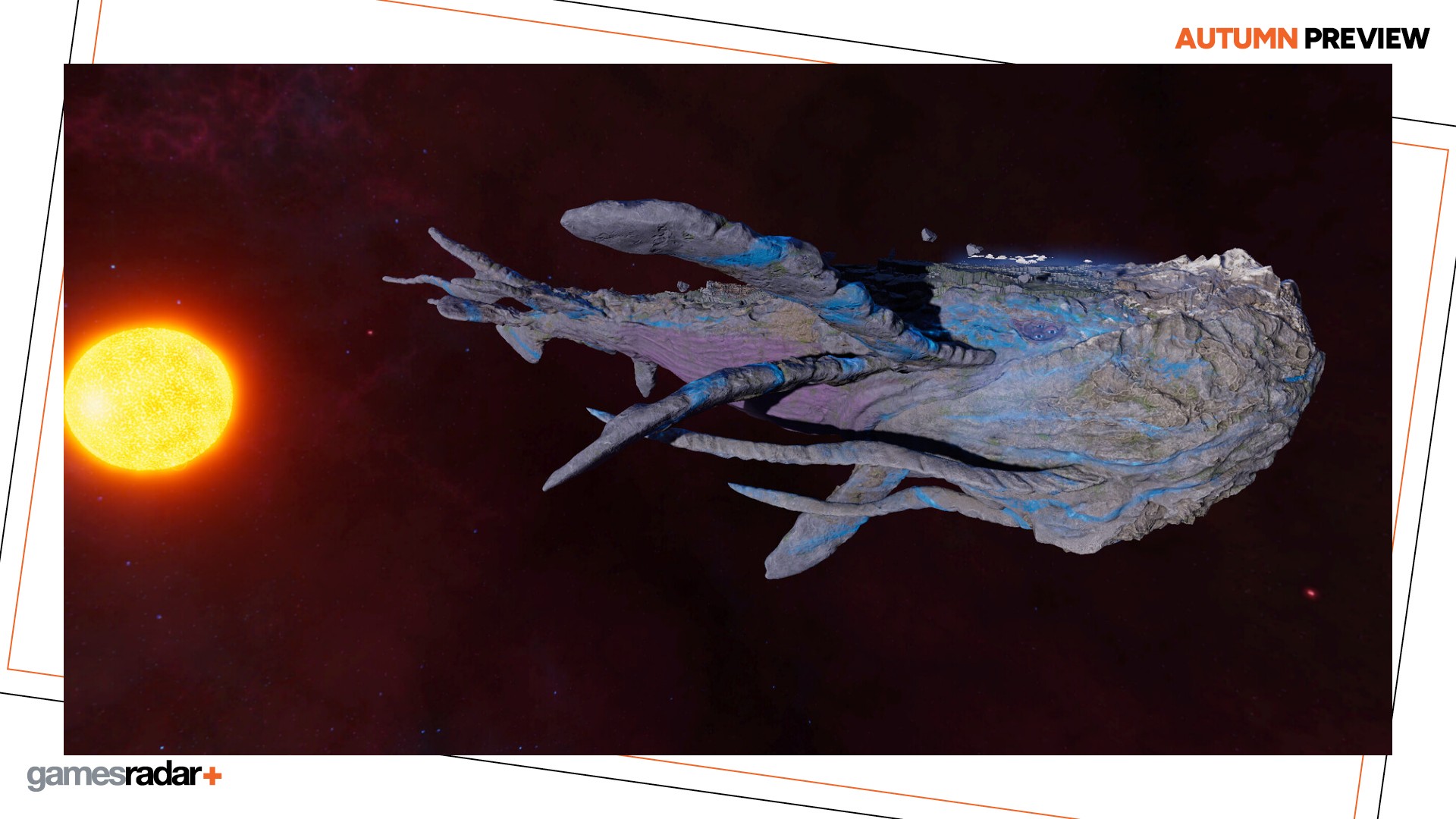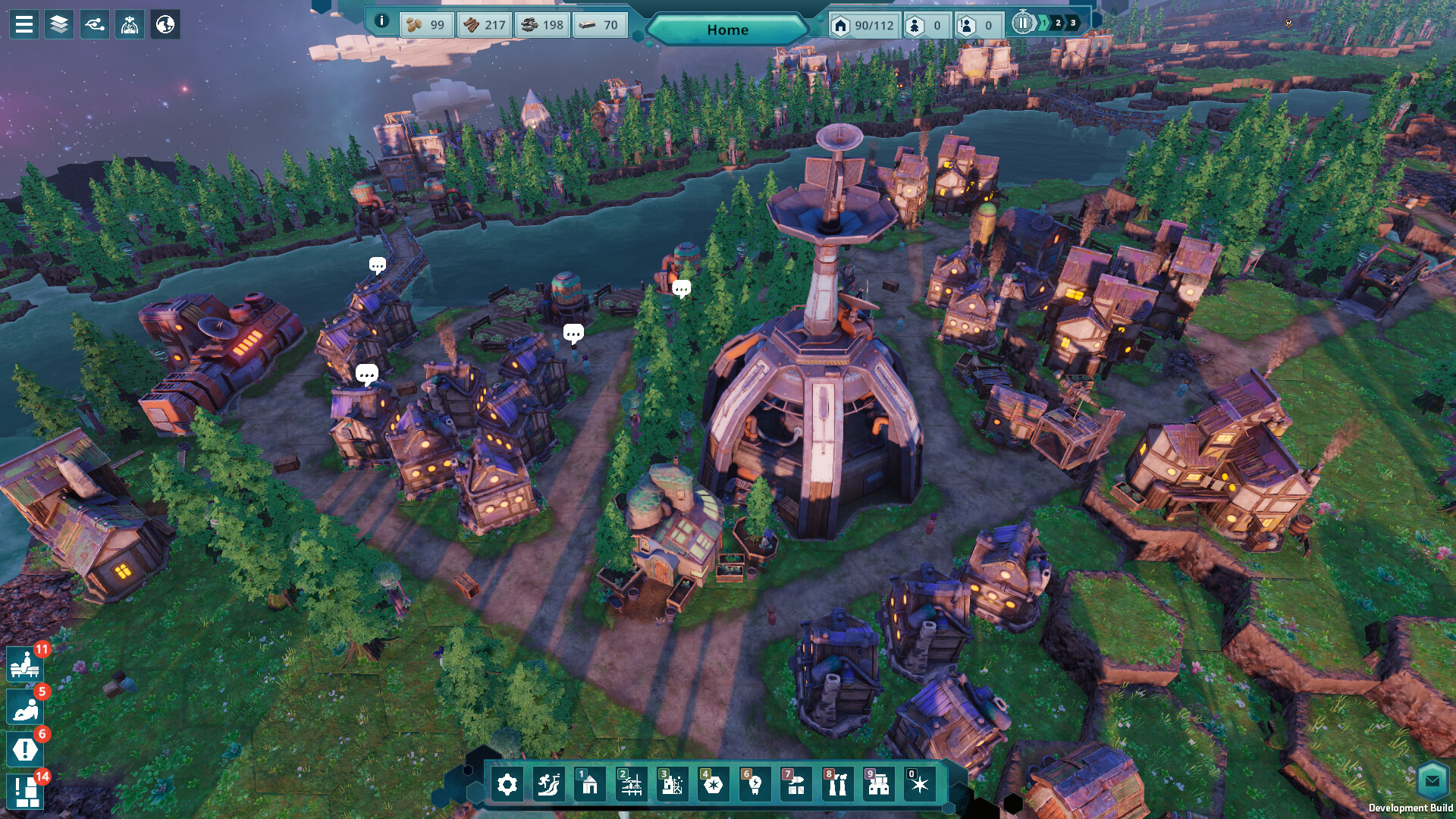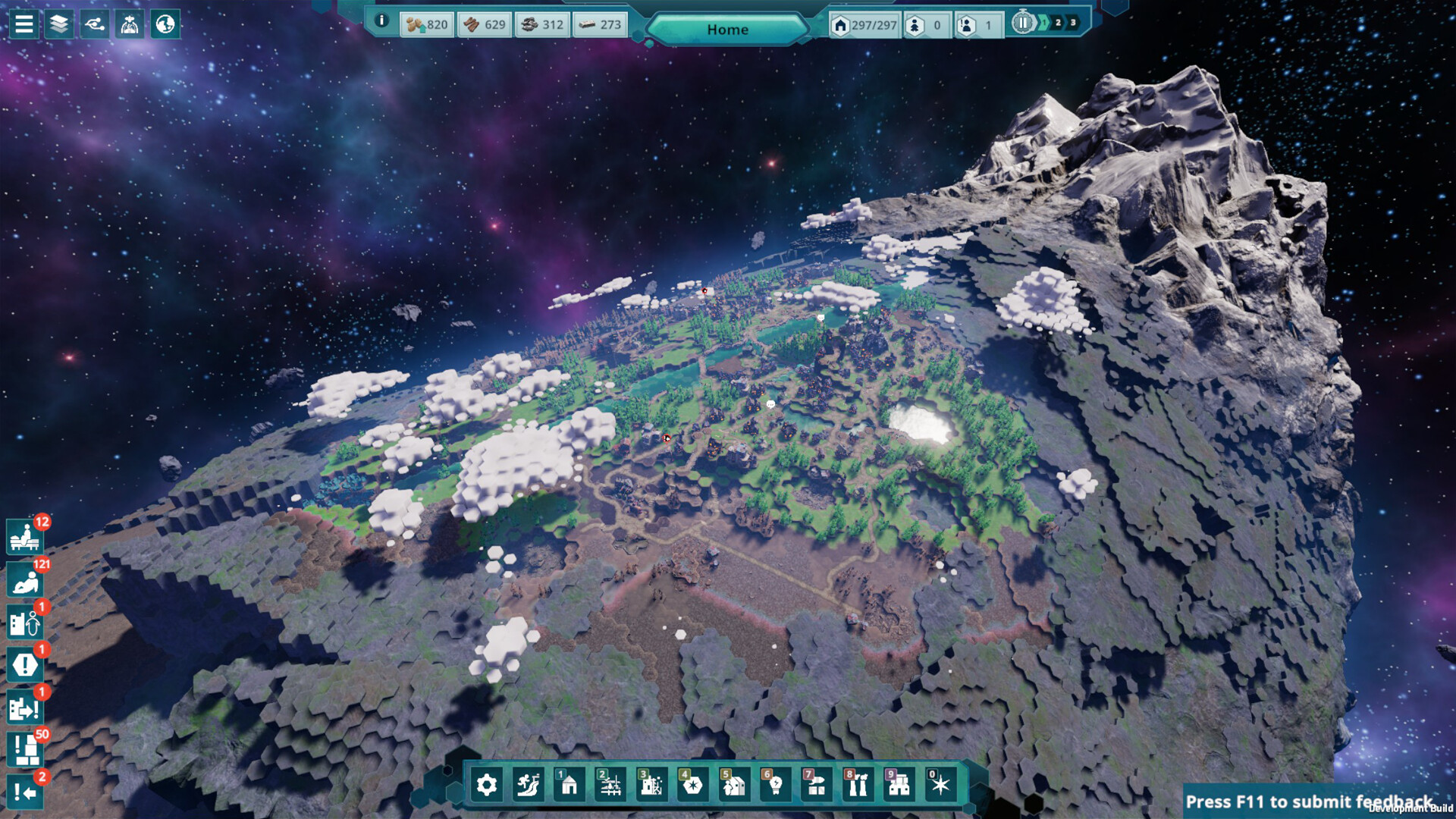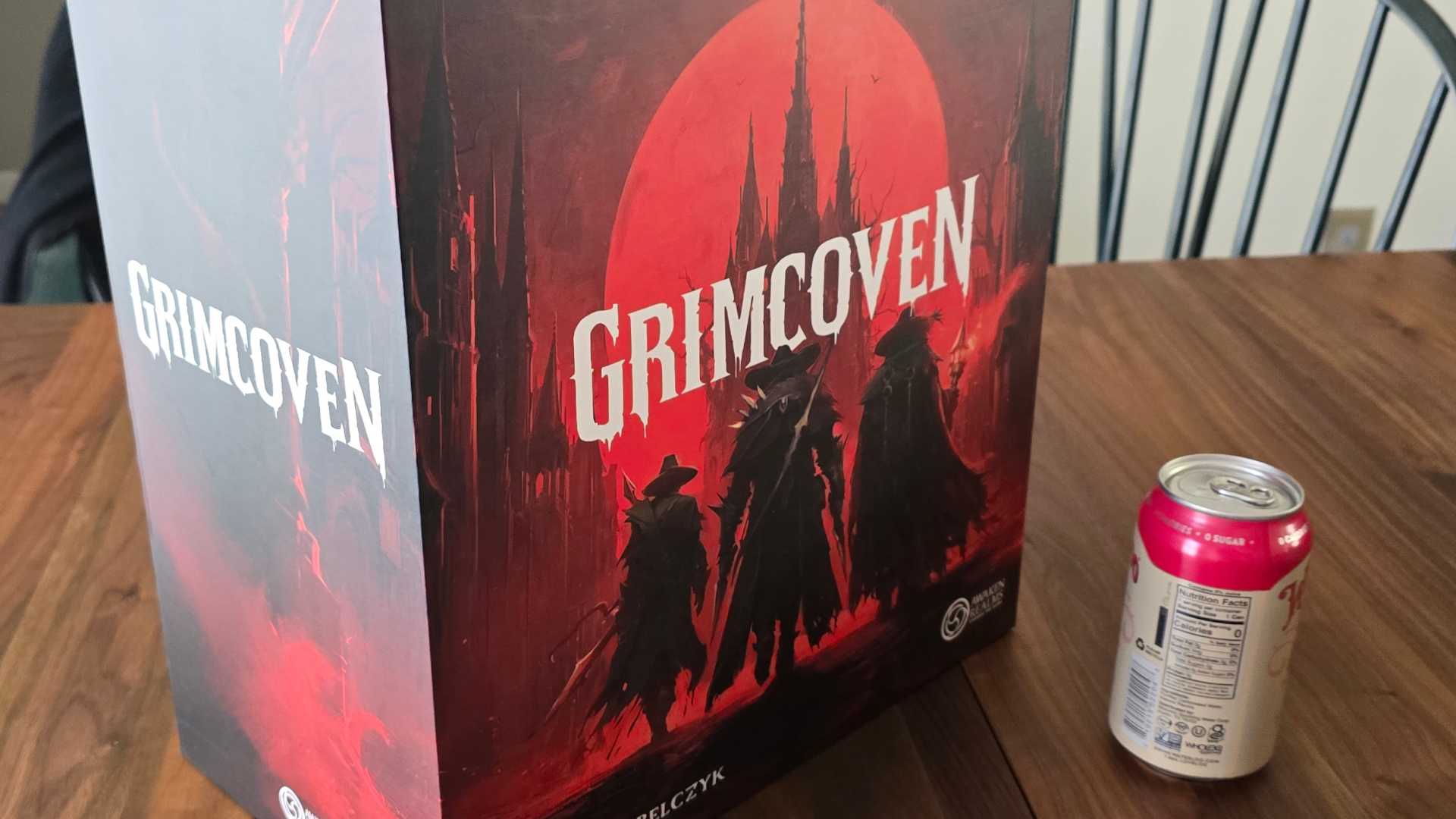Beyond These Stars is the weirdest city-builder I've ever seen, thanks to a giant space whale that can go rogue if it gets too hungry

Weekly digests, tales from the communities you love, and more
You are now subscribed
Your newsletter sign-up was successful
Want to add more newsletters?

Every Friday
GamesRadar+
Your weekly update on everything you could ever want to know about the games you already love, games we know you're going to love in the near future, and tales from the communities that surround them.

Every Thursday
GTA 6 O'clock
Our special GTA 6 newsletter, with breaking news, insider info, and rumor analysis from the award-winning GTA 6 O'clock experts.

Every Friday
Knowledge
From the creators of Edge: A weekly videogame industry newsletter with analysis from expert writers, guidance from professionals, and insight into what's on the horizon.

Every Thursday
The Setup
Hardware nerds unite, sign up to our free tech newsletter for a weekly digest of the hottest new tech, the latest gadgets on the test bench, and much more.

Every Wednesday
Switch 2 Spotlight
Sign up to our new Switch 2 newsletter, where we bring you the latest talking points on Nintendo's new console each week, bring you up to date on the news, and recommend what games to play.

Every Saturday
The Watchlist
Subscribe for a weekly digest of the movie and TV news that matters, direct to your inbox. From first-look trailers, interviews, reviews and explainers, we've got you covered.

Once a month
SFX
Get sneak previews, exclusive competitions and details of special events each month!
Beyond These Stars exists in an interesting new city-builder sub-genre. Over the past couple of years, a suite of games have tasked you not with building your settlement on solid ground, but on partnering up with some local megafauna, constructing your city on their back as they move around their world. Beyond These Stars takes that idea to the final frontier, positioning your civilization on the back of a sentient space whale as it navigates the galaxy.
That whale is Kewa, an entity so enormous that its head is encrusted with ice-covered peaks. That gives you plenty of space to build - from humble beginnings it's not long before you've got a sprawling city that still takes up only a small portion of Kewa's total surface area. But it's also not long until that causes its own problems.
Adrift

Developer: Balancing Monkey Games
Publisher: Hooded Horse
Platform(s): PC, XSX, PS5
Release date: TBC 2026
Kewa's inhabitants, the Peeps, are seeking to re-occupy the abandoned homes of their distant forebears – a spacefaring civilization that was spread out among the stars.
While Kewa can (slowly) travel those interstellar distances with relative ease, for the Peeps, staying themselves alive on their long journey requires a lot of resources. Many of those can be gathered or synthesized from Kewa themselves, but many others can only be found dotted around the galaxy.
During my hands-off demo, the Peeps were hoping to explore a colder region of space, but nothing they could gather from Kewa gave them the resources to do so. Thankfully, they can travel around individual solar systems relatively quickly, thanks to an interplanetary travel system that forms the core of every new settlement. Over time, the idea is that you'll build up a system of colonies focused around specific resources - in this case a planet capable of sustaining life for a population of sheep-like creatures that could provide wool for warm clothing.
That wool could be ferried back to Kewa, where it could be processed to allow the Peeps to survive in that colder region. But once Kewa moved away from that specific planet, the Peeps would have to return to its interstellar neighborhood before they'd be able to gather its specific resources again. That's easier said than done, as Kewa is fully sentient, and while they're often prepared to be an agreeable host, they're also very much their own creature. That means while you can ask them to work with you, they may not always agree to do so.

Beyond These Stars has done a good job of combining conventional city-building mechanics with something far more unknowable...
If Kewa gets too hungry, they'll fly off to a specific region of space to eat, regardless of whether that's somewhere you want to be or not.
The heavy industry you're likely to need to build on Kewa's back is also quite upsetting to your host, and while Beyond These Stars allows you to use by-product from almost any process in the creation of something new, its environmental message extends to making sure you'll need to clean up after yourself to keep Kewa happy.
Communing with the whale is an entertainingly clunky system, a retro screen displaying a text-based conversation that only progresses slowly, Kewa's vast mind taking its time with each response. It's hard to convey the sentience in what clearly remains a gameplay-driven system, but Beyond These Stars has done a good job of combining conventional city-building mechanics with something far more unknowable and complex.
As this genre continues to evolve and iterate on itself, it's fascinating to see how a whole new entity can make its mark via a game that's as much a galaxy-wide supply chain simulator as it is a traditional city management game. That's the magic of Beyond These Stars: it's all of these things all at once, and the sheer oddity of it all is enough to compel me already
Weekly digests, tales from the communities you love, and more
There are so many new games to keep track of, and with this handy list, it's easier than ever.

I'm GamesRadar's Managing Editor for news, shaping the news strategy across the team. I started my journalistic career while getting my degree in English Literature at the University of Warwick, where I also worked as Games Editor on the student newspaper, The Boar. Since then, I've run the news sections at PCGamesN and Kotaku UK, and also regularly contributed to PC Gamer. As you might be able to tell, PC is my platform of choice, so you can regularly find me playing League of Legends or Steam's latest indie hit.
You must confirm your public display name before commenting
Please logout and then login again, you will then be prompted to enter your display name.


